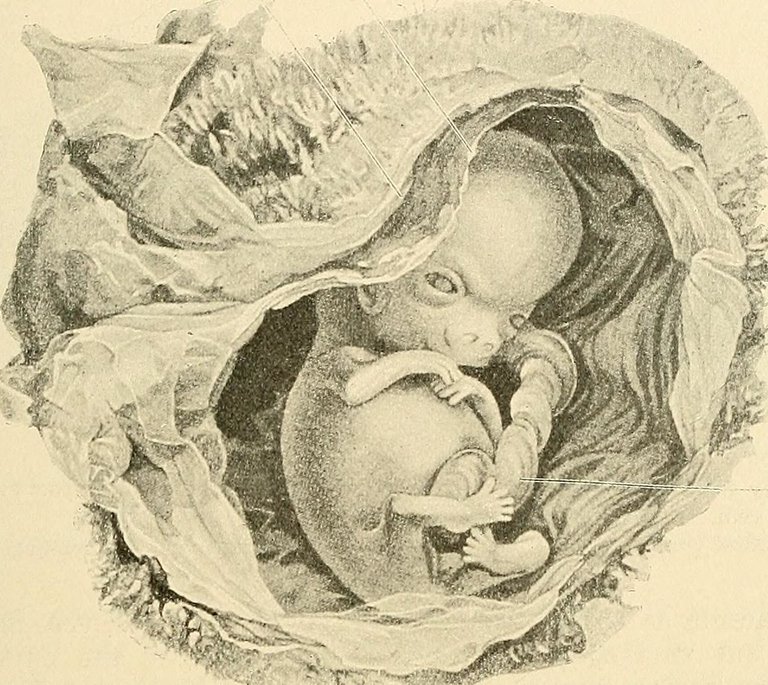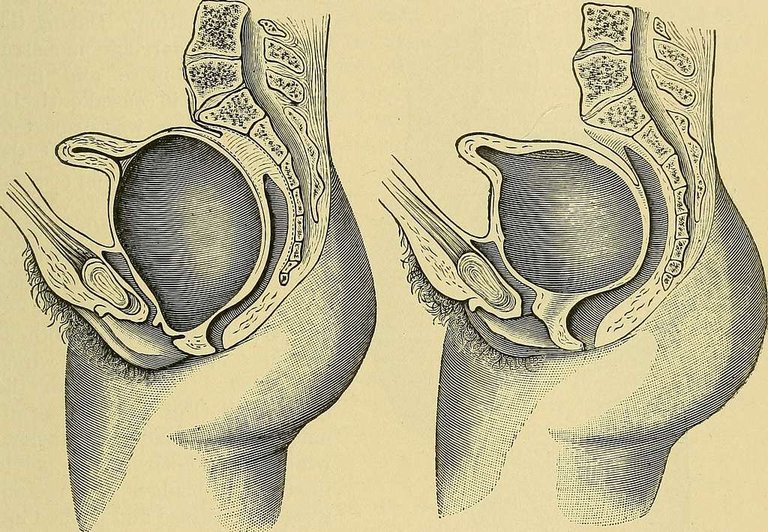I saw a video of a woman who was pregnant and when the pregnancy had matured to about seven (7)months, she went to the hospital for a check-up the doctor strangely asked her about when her water broke, surprised about this question she reminded the doctor that she was just seven months gone, and at no time did she feel her water breaking.
Is it possible to have my water break without me knowing? she asked strangely looking up at the doctor, but your amniotic fluid isn't sufficient anymore he tried to explain to her. This had me thinking about the possible reasons why a pregnant woman will suddenly have her amniotic fluid reduced without having it leak through the body.
flickr.com

Amniotic fluid is a necessary part of the development of a baby, it is the fluid that surrounds the baby as it grows inside the uterus, based on the severe importance of the amniotic fluid, it is concerning when it is insufficient. Its functions are enormous;
- It helps the baby's part develop adequately.
- Keeps the temperature of the baby regulated.
- Gives room for the baby to move.
- Serves as a form of shock absorber to the baby.
- Helps to prevent infection.
- It helps to keep the umbilical cord floating freely, this will prevent it from getting squished between the baby and the side of the uterus.
About 12 days after conception are when the body begins to produce amniotic fluid, in the first half of the pregnancy, the amniotic fluid is made of water from the body, during the second trimester, the amniotic fluid is made from the baby's urine (sounds so strange but true), it is a very crucial part of how your baby learns how to swallow, breathe, get fluid filtered through the kidneys and pee.
Reduced fetal urine output happens due to several reasons but they are all categorized into two; we have fetal urinary tract obstruction and decreased production of urine by the fetal kidney.
Oligohydramnios: This happens when the fetus begins to receive inadequate oxygen and nutrients from the placenta, this way blood is shunted away from the fetal kidney, there is reduction in glomerular filteration rate, as well as decrease in urinary output. Another reason why oligohydramnios can happen is probably because the mother's amniotic membrane has ruptured and amniotic fluid is already leaking out of the uterus.
Polyhydramnios: Normally, the fetus swallows amniotic fluid and urinates to create more fluid. At the point when the fetus is unable to swallow a sufficient amount of amniotic fluid, we will have a case of polyhydramnios. This can happen due to uncontrolled maternal diabetes with elevated maternal blood sugar, but in most cases of polyhydramnios, there is usually no definite cause.
picryl.com

Birth defects: If a growing baby has physical problems, especially a problem with the kidney, he may not be able to produce sufficient urine, which will lead to low amniotic fluid.
Post-term pregnancy: Usually, amniotic fluid will begin to decrease after 36 weeks of pregnancy, and it will likely become too low after 42 weeks of pregnancy. Certain medications especially those used for the treatment of high blood pressure can as well cause low amniotic fluid.
You should visit your medical expert once you start feeling; contractions, vaginal bleeding, leaking fluid from your vagina, feeling that your baby is moving less, and cramps.
The only way to measure the level of amniotic fluid is through an ultrasound. Low amniotic fluid can be treated, and the treatment is dependent on the cause of the problem and how long gone the pregnant woman is. While some of these treatments are simple, others will require more intensive intervention.
Consume more water.
Amnioinfusion: The doctor squirts a saltwater solution through the cervix of the pregnant woman and into the amniotic sac. This will temporarily increase the amount of amniotic fluid and increase the visibility of the baby on ultrasound.
IV fluids: Doctors will recommend this especially when the mother is dehydrated due to vomiting or nausea.
Fluid injection before delivery using amniocentesis.
Sufficient bedrest.
Diet
Treating preexisting causes.
Early delivery: There is a high risk of carrying pregnancy without amniotic fluid, so your doctor may recommend early delivery for your baby.
References.
https://www.healthline.com/health/pregnancy/how-to-increase-amniotic-fluid#takeaway
https://www.marchofdimes.org/find-support/topics/planning-baby/oligohydramnios
https://www.ncbi.nlm.nih.gov/books/NBK441881/
https://www.medicalnewstoday.com/articles/how-to-increase-amniotic-fluid#summary
https://my.clevelandclinic.org/health/diseases/22179-oligohydramnios
Thanks for your contribution to the STEMsocial community. Feel free to join us on discord to get to know the rest of us!
Please consider delegating to the @stemsocial account (85% of the curation rewards are returned).
Thanks for including @stemsocial as a beneficiary, which gives you stronger support.